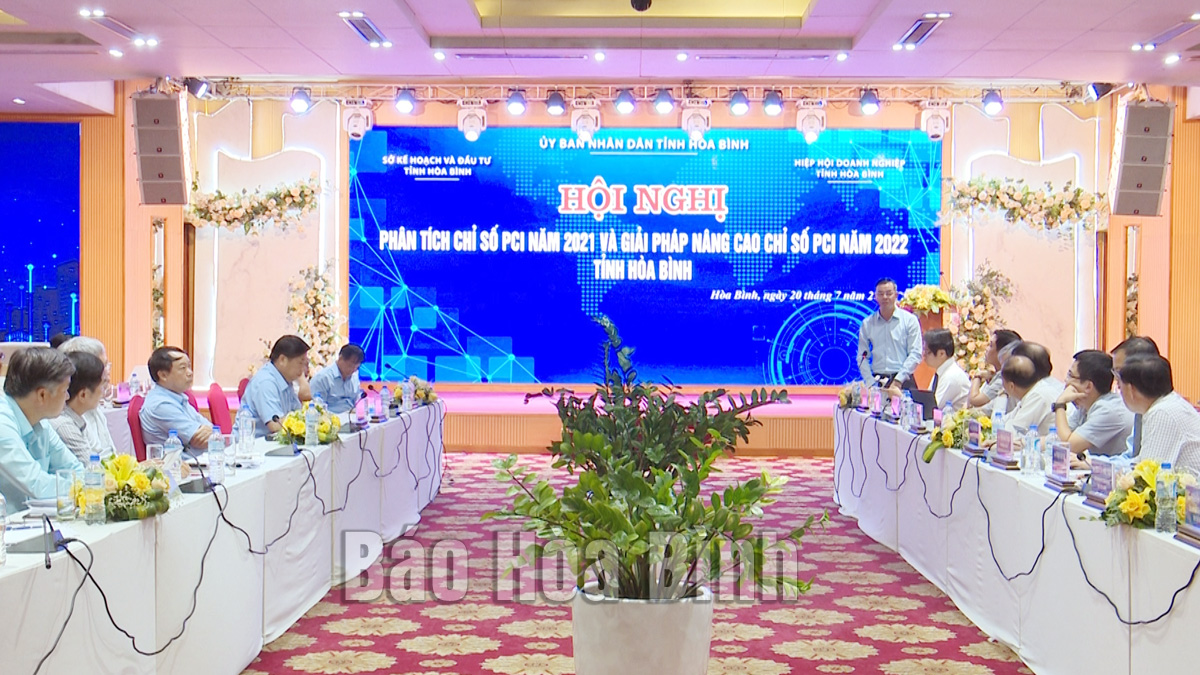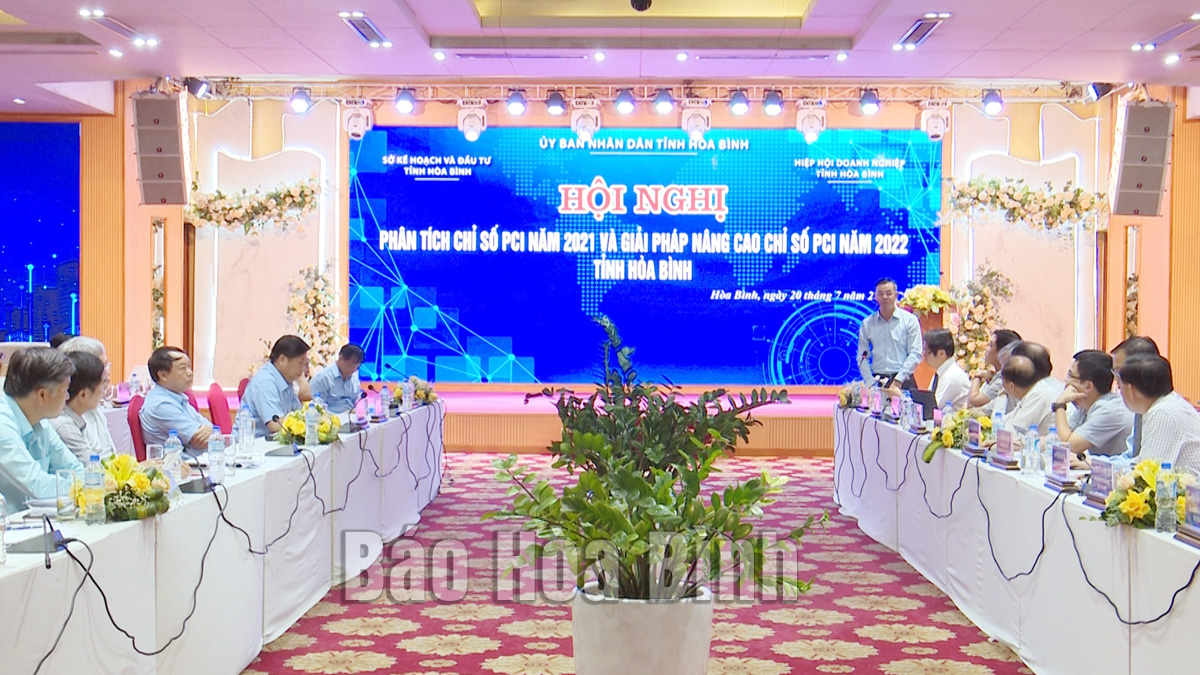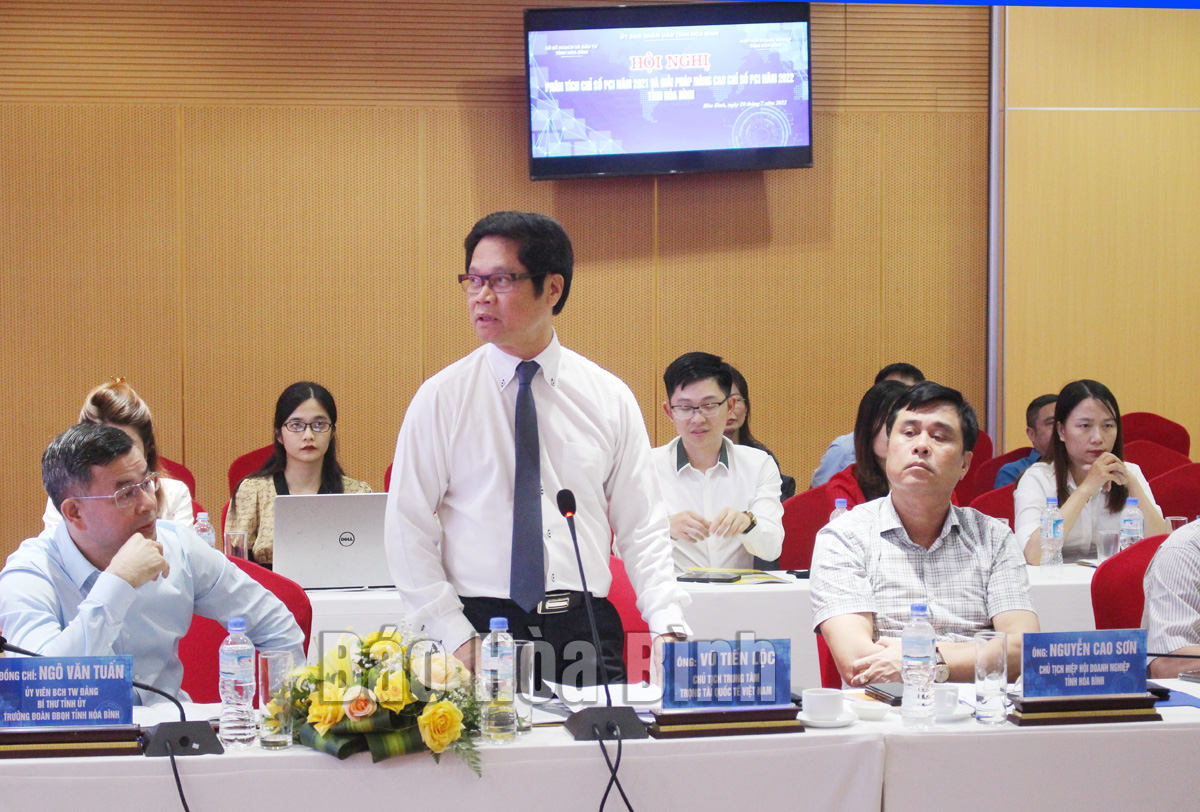
(HBO) - The People’s Committee of Hoa Binh province has recently hosted a conference to discuss measures to improve the provincial Competitiveness Index (PCI) in 2022.

Secretary of the provincial Party Committee Ngo Van Tuan speaks at the conference.
In his
speech at the event, Chairman of the provincial People’s Committee Bui Van
Khanh asked leaders of departments, sectors, and localities to make more
efforts to further improve the locality’s PCI in the coming time.
In 2021 and the first six months of 2022, the provincial authorities issued
many documents on measures to improve the business environment and
competitiveness of the locality.
Working groups have been also established to support investors in speeding up
the progress of investment projects.
A series of meetings have been regularly organised to seek solutions to remove
obstacles and difficulties facing businesses and investors, especially
production and business establishments affected by the COVID-19 pandemic.
At the conference, experts said there remains a large room for Hoa Binh to
better its PCI, adding that the local authorities should pay more attention to
improving the Public Administration Reform (PAR) Index and the Provincial
Governance and Public Administration PerformanceIndex(PAPI), and
effectively apply the set of indicators to evaluate the competitiveness of departments,
sectors, People's Committees of districts and Hoa Binh city.
Hoa Binh should further promote digital transformation to handle issues related
to inclusive development, especially improving the quality of planning, they
added./.
Dr. Vu Tien Loc, PresidentofVietnam International Arbitration
Centre(VIAC), addresses the event.
Hoang Quang Phong, Vice Chairman of the Vietnam Chamber of Commerce and
Industry, speaks at the event.
According to data from the Hoa Binh Provincial Party Committee, the industrial production index for the first six months of 2025 is estimated to have increased by 20% compared to the same period last year. This marks the highest year-on-year growth rate for this period since 2020.
In the first six months of 2025, Hoa Binh province’s export turnover was estimated at 1.145 billion USD, marking an 18.11% increase compared to the same period in 2024. Import turnover was estimated at $ 804 million, a 17.15% increase, which helped the province maintain a positive trade balance.
The lives of the ethnic minority farmers in Tan Lac district have gradually improved thanks to the new directions in agricultural production. This is a testament to the collective strength fostered through the professional associations and groups implemented by various levels of the district’s Farmers’ Union.
With the motto the "product quality comes first,” after nearly one year of establishment and operation, Muong village’s Clean Food Agricultural and Commercial Cooperative, located in Cau Hamlet, Hung Son Commune (Kim Boi district), has launched reputable, high-quality agricultural products to the market that are well-received by consumers. The products such as Muong village’s pork sausage, salt-cured chicken, and salt-cured pork hocks have gradually carved out a place in the market and they are on the path to obtaining the OCOP certification.
In the past, the phrase "bumper harvest, rock-bottom prices" was a familiar refrain for Vietnamese farmers engaged in fragmented, small-scale agriculture. But today, a new spirit is emerging across rural areas of Hoa Binh province - one of collaboration, organisation, and collective economic models that provide a stable foundation for production.
Maintaining growing area codes and packing facility codes in accordance with regulations is a mandatory requirement for agricultural products to be eligible for export. Recently, the Department of Agriculture and Environment of Hoa Binh province has intensified technical supervision of designated farming areas and packing facilities to safeguard the "green passport" that enables its products to access international markets.





